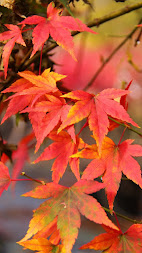Is Leyland Cypress Worth Planting?
When choosing a hedge to protect your land from wind and privacy, many people choose the fast-growing Leyland cypress. But what you might not know is that these trees have several problems including bad screening performance in some cases due to their rapid growth rate-- which can cause problems like weakened roots or blowouts!
Problems with Leyland Cypress
Here I've listed reasons why planting Leyland cypress hedges isn't always ideal-
Leyland cypress is an evergreen, so it will provide year-round screening. However, this coniferous tree has a number of problems that you should be aware of before planting them on your property
- Consider their invasive nature
- High blowing potential
- Poor screening performance.
They crowd out native plants and disrupt natural ecosystems. If you plant them on your property, they could easily spread into neighboring properties and beyond.
Another problem with Leyland cypress is that they are susceptible to a number of diseases and pests. For example, they are often infested with aphids, which can cause the trees to produce excess sap. This sticky substance can attract other pests, such as ants and wasps. The trees are also susceptible to fungal diseases, such as Phytophthora root rot. These diseases can cause the trees to decline and die.
Leyland cypress also has a high blowing potential. This means that the trees can easily be toppled by strong winds. In fact, they are one of the most common types of trees to fall during hurricanes. If you live in an area that is prone to hurricanes or other severe weather events, you should think twice about planting Leyland cypress on your property.
Finally, Leyland cypress is not always the best choice for privacy screening. This is because the trees grow very quickly. As they grow, they often become thin and leggy. This can create gaps in the hedge that allow people to see through.
Alternatives to Leyland Cypress
If you are looking for a privacy hedge, you might be better off choosing a slower-growing tree, such as arborvitae. Arborvitae is a type of evergreen that grows at a much slower rate than Leyland cypress. This means that it is less likely to become leggy and will provide better privacy screening.
In conclusion, Leyland cypress has a number of problems that you should be aware of before planting them on your property. Consider their invasive nature, high blowing potential, and poor screening performance. You might be better off choosing a different tree for your privacy hedge.


.png)
Comments
Post a Comment